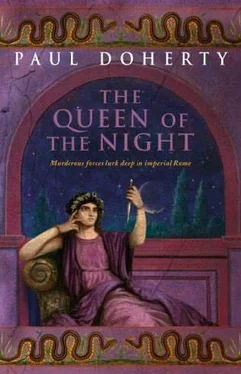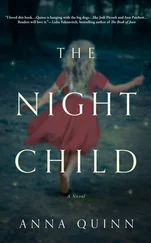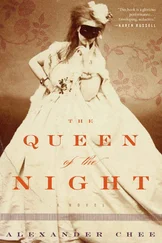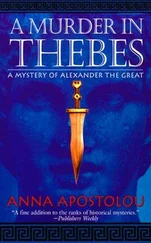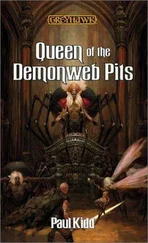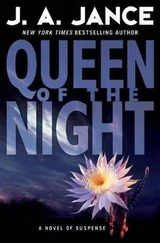Paul Doherty - Queen of the Night
Здесь есть возможность читать онлайн «Paul Doherty - Queen of the Night» весь текст электронной книги совершенно бесплатно (целиком полную версию без сокращений). В некоторых случаях можно слушать аудио, скачать через торрент в формате fb2 и присутствует краткое содержание. Жанр: Классический детектив, на английском языке. Описание произведения, (предисловие) а так же отзывы посетителей доступны на портале библиотеки ЛибКат.
- Название:Queen of the Night
- Автор:
- Жанр:
- Год:неизвестен
- ISBN:нет данных
- Рейтинг книги:5 / 5. Голосов: 1
-
Избранное:Добавить в избранное
- Отзывы:
-
Ваша оценка:
- 100
- 1
- 2
- 3
- 4
- 5
Queen of the Night: краткое содержание, описание и аннотация
Предлагаем к чтению аннотацию, описание, краткое содержание или предисловие (зависит от того, что написал сам автор книги «Queen of the Night»). Если вы не нашли необходимую информацию о книге — напишите в комментариях, мы постараемся отыскать её.
Queen of the Night — читать онлайн бесплатно полную книгу (весь текст) целиком
Ниже представлен текст книги, разбитый по страницам. Система сохранения места последней прочитанной страницы, позволяет с удобством читать онлайн бесплатно книгу «Queen of the Night», без необходимости каждый раз заново искать на чём Вы остановились. Поставьте закладку, и сможете в любой момент перейти на страницу, на которой закончили чтение.
Интервал:
Закладка:
Claudia glanced across the well-groomed lawn at a strutting peacock, its feathers all arrayed to catch the sun like some gorgeously bejewelled coat. 'Theodore was like that,' she murmured, 'all shadow and little substance, but in this case, what was the little substance?' Returning to the library, she smiled: the manuscript on the desk had been moved. Doubtless the old librarian had come across to see what she'd been writing. However, Claudia often wrote in her own script, intelligible to no one; sometimes she lost her temper with herself when even she couldn't decipher it, but not this time. She would remember the mask! She sat down, grasped the pen and continued to write.
Tertio. The death of the veterans. Three had been killed: one in his chamber, two in alleyways; the killer was undoubtedly a woman, a prostitute, a whore. Old soldiers were vulnerable; they would be wary, but a pretty woman was a different matter. Claudia could imagine the assassin snuggling close, the man putting his arms around her, leaving himself exposed to that swift dagger thrust to the belly. The shock and the pain probably forced him to his knees, then the killer would slip behind him, pulling back his head, cutting his throat before carrying out those heinous abominations upon his corpse. Claudia was certain that the murders were linked to what had happened in the north of Britain some eighteen years ago; that Pictish war band being massacred in the mile fort, the Golden Maid, the rivalry between Stathylus and Postulus. But what had happened now to summon ghosts from the past? What had Petilius seen? Why did he wish to meet his old general again? To tell him something confidential? Something secret? But why didn't he share this with his friends? Of course! Claudia glanced up. All those veterans were frightened. General Aurelian had put his finger on the heart of the problem. Postulus had been a Roman officer, maliciously murdered by his own men, — for such an abominable crime they deserved crucifixion or some other horrific death. Did Petilius see something, or someone, at that reunion and realise their secret might not be as carefully guarded and protected as he thought? Was that why he didn't share his information with his colleagues but wanted to see Aurelian? Claudia sat for a while studying what she'd written, reflecting on what she'd seen and heard. Her mind returned to the She Asses tavern, and she picked up the pen again.
Quatro. Sancta Fulgentia — where had that corpse come from? Claudia knew enough about the Christians and the great emphasis they laid on miracles. She'd heard stories of bodies found in the catacombs, especially young women who'd been killed and buried before the Edict of Milan, when Constantine had issued his Decree of Toleration for the Christians. Some of these tombs had now been opened, and according to popular rumour a few of the bodies within had not decomposed, a true sign of God's favour. Was this corpse one of these? Claudia concentrated on what she'd learned. The body had definitely been buried with Diocletian's coins on its eyelids; these dated the woman's death to about nine or ten years ago. It had been buried in a part of the garden, certainly not by Polybius, who hadn't owned the tavern then. Apuleius, a man of integrity, had guaranteed that the body was singular in aspect and appearance. Yet if Fulgentia had been a girl taken from a family outside the city, brought into Rome for questioning and murdered, why not bury her in the cemetery along the Via Appia where her corpse would never be found? Or, as had happened to so many, throw her into the Tiber or bury her beneath one of the many wastelands and commons in and around Rome?
She tried to recall the events as they had happened. The corpse had been found by Venutus the Vine-dresser, who'd chosen the wrong part of the garden to work. He'd started in the poor light and Polybius, busy in the tavern making sure the ovens and stoves were fired, didn't notice. The corpse had been found in that chest, the coins pressed on the eyes and those faint marks on her throat and along her shoulders. It hadn't decomposed. Claudia closed her eyes. Polybius had naturally taken control and sent for someone skilled in medicine. Apuleius was the natural choice. He and his wife arrived. They declared Fulgentia was possibly a martyr and should be revered. No clinical explanation could be given for the preservation. The corpse was swathed in fresh linen, placed back in its coffin and taken down to the cool cellar. Polybius, never a man to miss a profit, then proclaimed the Great Miracle throughout the quarter. Men like Mercury the Messenger spread the news and the curious flocked in; they bought wine and food as well as paying to gape at the Great Miracle.
Claudia gritted her teeth. There was something wrong. Polybius was a rogue, but Claudia knew her uncle and Poppaoe would never stoop to any real wickedness. Mischief perhaps, evil no. And then there were the witnesses: Narcissus the Neat, Oceanus, and, above all, Apuleius. She paused as she heard the sound of women singing, straining her ears she caught the words.
'To the Lord of Light on the eastern horizon, Risen Lord, clothed in might, come Lord Jesus, come.'
'What is that?'
The librarian, dozing on his stool, lifted his head. 'Ah, that will be the Lady Urbana and the other Magdalena. They often meet here, in that part of the garden set aside for them.'
'Can I see?'
'Come with me.' The old librarian, huffing and puffing, got off his stool, came around his table and led Claudia out into the bright sunlight. After the smell of vellum, parchment, ink and sand, the garden smelled even more fragrant. The librarian, grumbling under his breath, led Claudia along a portico where beautiful medallions, attached by cords between the pillars, swung lazily in the breeze, each displaying the head of a god or goddess. On the lawns peacocks screeched, and from gilded cages a'brilliantly coloured flock of songbirds thrilled the heart and pleased the ear. A veritable paradise of dappled greens, shrubs from every part of the Empire embedded in the richest soil. They passed grottoes and statues, went through a cherry orchard and out on to another green lawn stretching up to a corner of the curtain wall. A group of women dressed in white gowns, stoles pulled up over their heads, knelt on marble slabs all facing what Claudia first thought was a rockery, a pile of earth in which polished stones had been set. On the top stood a wooden cross and next to that a small artificial cave. She immediately recognised the symbols: the crucifix of the Lord Jesus and the cave in which He lay buried for three days before He rose from the dead. The women, Urbana leading from the front, were still singing their hymn, a soft, melodious chant, rising and falling, exhorting Christ, the Lord of Time and Space, begging him to come again.
The librarian quickly retreated; Claudia heard a cough and turned to her right. Leartus stood beneath a tree, smiling at her. He raised his hand and then turned back, joining in the hymn as it reached its final doxology giving Glory to the Father, the Son and the Holy Spirit. The singing tapered off. The women knelt, heads bowed to the ground. Urbana rose to her feet. She was about to address her companions when she glimpsed Claudia, smiled and softly clapped her hands.
'Sisters,' she said, 'we have a visitor.'
The rest of the ladies rose and turned to greet Claudia, faces smiling, pushing back the stoles from their heads. Claudia recognised some of the faces from the court; they all looked severe, no cosmetics or jewellery, no ornamentation, simple and pure in their dress. Urbana moved amongst them talking softly, and the group broke up, drifting away across the garden, whilst Urbana and Cassia took Claudia and Leartus over to a portico crowned with flowers and creeping ivy. Inside it was cool and refreshing.
Читать дальшеИнтервал:
Закладка:
Похожие книги на «Queen of the Night»
Представляем Вашему вниманию похожие книги на «Queen of the Night» списком для выбора. Мы отобрали схожую по названию и смыслу литературу в надежде предоставить читателям больше вариантов отыскать новые, интересные, ещё непрочитанные произведения.
Обсуждение, отзывы о книге «Queen of the Night» и просто собственные мнения читателей. Оставьте ваши комментарии, напишите, что Вы думаете о произведении, его смысле или главных героях. Укажите что конкретно понравилось, а что нет, и почему Вы так считаете.
